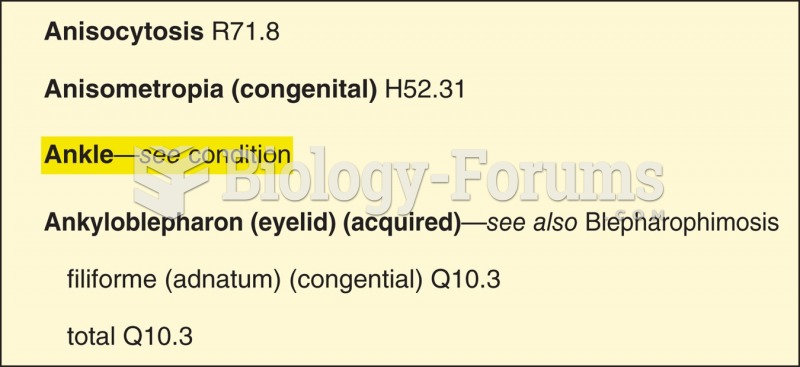|
|
|
The average human gut is home to perhaps 500 to 1,000 different species of bacteria.
More than 4.4billion prescriptions were dispensed within the United States in 2016.
After a vasectomy, it takes about 12 ejaculations to clear out sperm that were already beyond the blocked area.
The Centers for Disease Control and Prevention (CDC) was originally known as the Communicable Disease Center, which was formed to fight malaria. It was originally headquartered in Atlanta, Georgia, since the Southern states faced the worst threat from malaria.
Your skin wrinkles if you stay in the bathtub a long time because the outermost layer of skin (which consists of dead keratin) swells when it absorbs water. It is tightly attached to the skin below it, so it compensates for the increased area by wrinkling. This happens to the hands and feet because they have the thickest layer of dead keratin cells.







